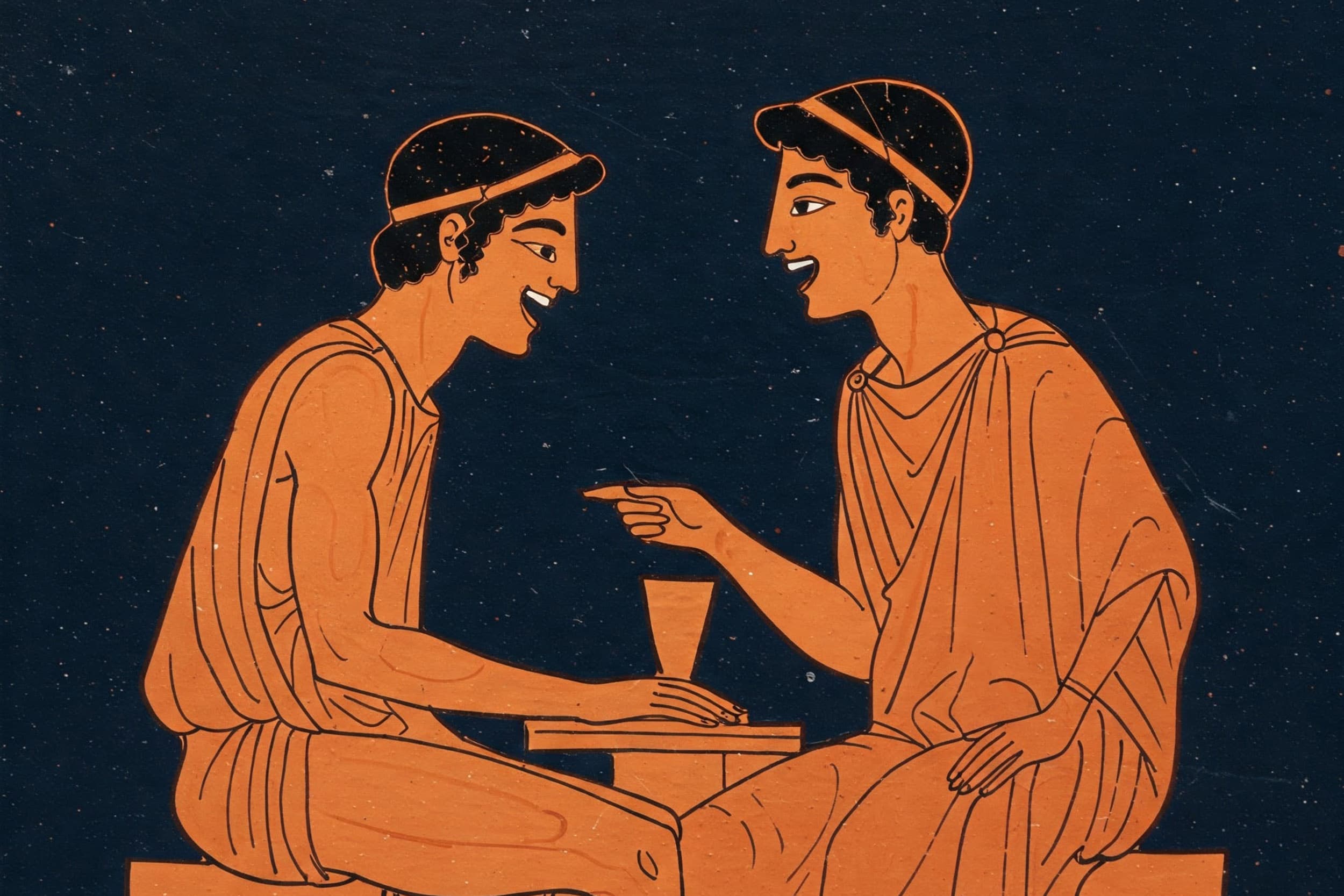At the University of Virginia, assistant professor of classics Inger Kuin explores the intellectual history of ancient Greece and Rome. Within her research, she studies the role of humor in classical thought, even teaching a course, Why Do We Laugh?
UVA Today checked in with her to get an answer to that question and more.
Q. So, why do we laugh?
A. The argument goes – and I find this argument convincing – that laughter developed among early hominids as a signal used during group play to signal something that is surprising or incongruous, but not dangerous. The evolutionary advantage of that is that if you learn to tell apart harmful surprises from not-harmful surprises, you can spend less time worrying and more time playing – and more time developing this group sociability, for which it’s been argued that laughter plays a big role.
Now, if we sort of fast forward all the way to why, why do we laugh today? I think things have gotten a lot more complicated, and there’s many different types of laughter, right?

Kuin researches humor as part of her larger exploration into the intellectual history of ancient Greece and Rome. (Photo by Matt Riley, University Communications)
Q. What are the different types of laughter?
A. There’s nervous laughter that people use to smooth over conversation. There is laughter just because something happens that’s surprising and out of the ordinary, but not in a bad way.
A type of laughter that often gets a bad rep is technically called superiority laughter, where you laugh at someone out of a sense of relief that you are not that person in that situation. When I tell students about this category of laughter, they typically say, “Oh, I would never. That’s so unpleasant.” But then when we start talking about what TikTok videos they find funny; most of the time, it is superiority laughter.
There are a lot of situations where laughter helps us work through topics that are difficult to talk about or make us nervous. Cracking a joke can be sort of an eruption of something that you’ve been thinking about that you have had a hard time addressing head-on.
Q. What made you interested in this work?
A. I’ve always been interested in humor and laughter as a person, but I became interested in humor and laughter as a scholar in graduate school. I was writing a dissertation about a writer from ancient Syria, in modern-day Turkey today, named Lucian, who was a comic writer. He wanted for his audiences to laugh, and I just became really interested in how humor worked within the cultural, religious space that he lived in.
And then, as I was doing that research, I had to ask all sorts of questions like, “How can you even tell that ancient texts are funny? How have people theorized laughter?”
I am, by training, a philosopher and a classicist. I have a master’s degree in philosophy and a Ph.D. in classics, which means I studied the history and culture of ancient Greek and Rome. Because I was studying these funny texts, I had to sort of learn about this whole new field of laughter studies, which is very interdisciplinary and has people from psychology to philosophy working within it to try and make sense of laughter.
The first new class that I proposed was on laughter and humor in ancient Greece and Rome at Dartmouth College. And then when I came to UVA, I had another opportunity to teach that class for the classics department.
Q. What are you currently working on that excites you?
A. Another side of my research is a cynic philosopher called Diogenes of Sinope, and I wrote a philosophical biography of him coming out in November. It really ties into the topic of laughter, because what we know about him are anecdotes and sayings, and in those you can really see him use humor and laughter to help people look at the world a little bit differently.
Sometimes these moments can be really, really silly. For example, somebody tries to engage him in a philosophical argument about the possibility of movement. This was a hot-button topic when Diogenes was alive, and he rebuts by simply getting up and walking in a circle around this person. He’s basically saying, "This is the type of theoretical, speculative, philosophical argument that I don’t think is all that useful."










